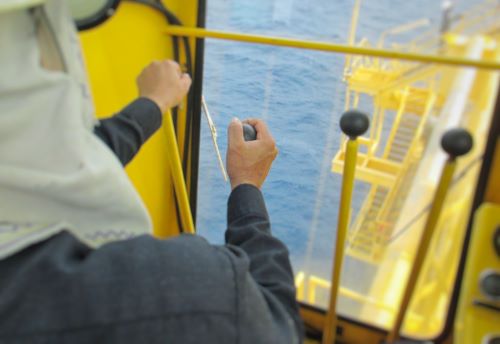
Does a Crane Operator Need Engineer Training?

Many people are intimidated by the prospect of crane engineer training, but it’s actually easier than people think. While it’s true that operating these types of heavy machinery is certainly a specialized field, which often requires certification and training to perform, it isn’t an insurmountable challenge to learn. It’s simply a matter of finding the right place to learn this valuable and in-demand skill.
One of the organizations that certify crane operators is the American Society of Mechanical Engineers (ASME), but are crane operators required to be engineers themselves? What knowledge are they expected to have? And where can they get it?
What a Crane Operator Needs to Know
It’s true that operating the various types of cranes is no simple task. An operator needs to understand the ins and outs of their particular machine as well as how to ensure a site is safe before their work begins. This means ensuring that there are no bystanders within the work area and securing risk factors such as power cables and nearby heavy loads.
Men and women who have had crane engineer training will understand the controls in their cab, as well as the physics behind moving heavy loads without putting the crane at risk of tipping. They’ll also understand how to communicate effectively with other workers on the jobsite so that they can efficiently work together to perform tasks as enormous as constructing buildings.
Crane engineers are responsible for every aspect of the crane’s performance, but operators do not necessarily need to be trained in this. They do, however, need to be able to analyze sites and ensure that work can be performed safely. They also need to be able to troubleshoot on the fly. Often, they’ll also be expected to read blueprints and form a mental picture of the final product they’re looking to create.
Where They Can Learn It
Most crane operators learn their trade at a special crane training school, such as West Coast Training. Employers won’t even consider hiring an operator who hasn’t received a certification from an organization such as the NCCCO. OSHA has required certification for crane operators since 2018. Operators will still require a great deal of experience operating various machines. For prospective operators, often the first and only way they can earn this experience is by practicing with the cranes during the field training portion of their schooling.
During crane engineer training, operators will also learn the various types of cranes that they may be assigned to. Far more than just the basic telescopic boom swing cab, they’ll also practice with lattice boom crawler cranes, fixed cab telescopic boom cranes, and others. They’ll also study the ins and outs of rigging, ensuring that they’re confident in every element of a job before they begin a task.
Finally, a good crane operator school will help their graduates seek employment. This might mean helping to create a resume or networking with the various employers in their area.
